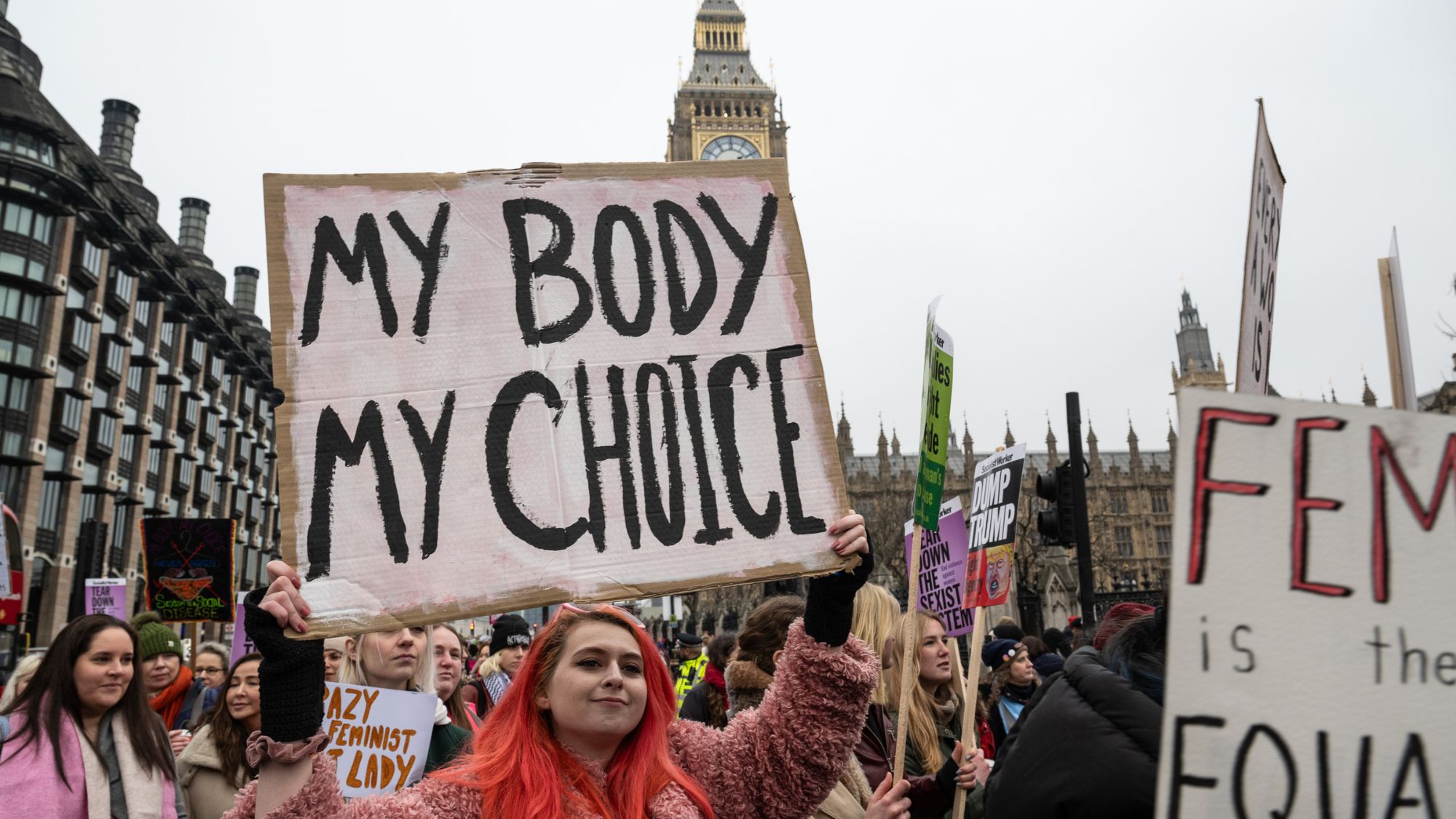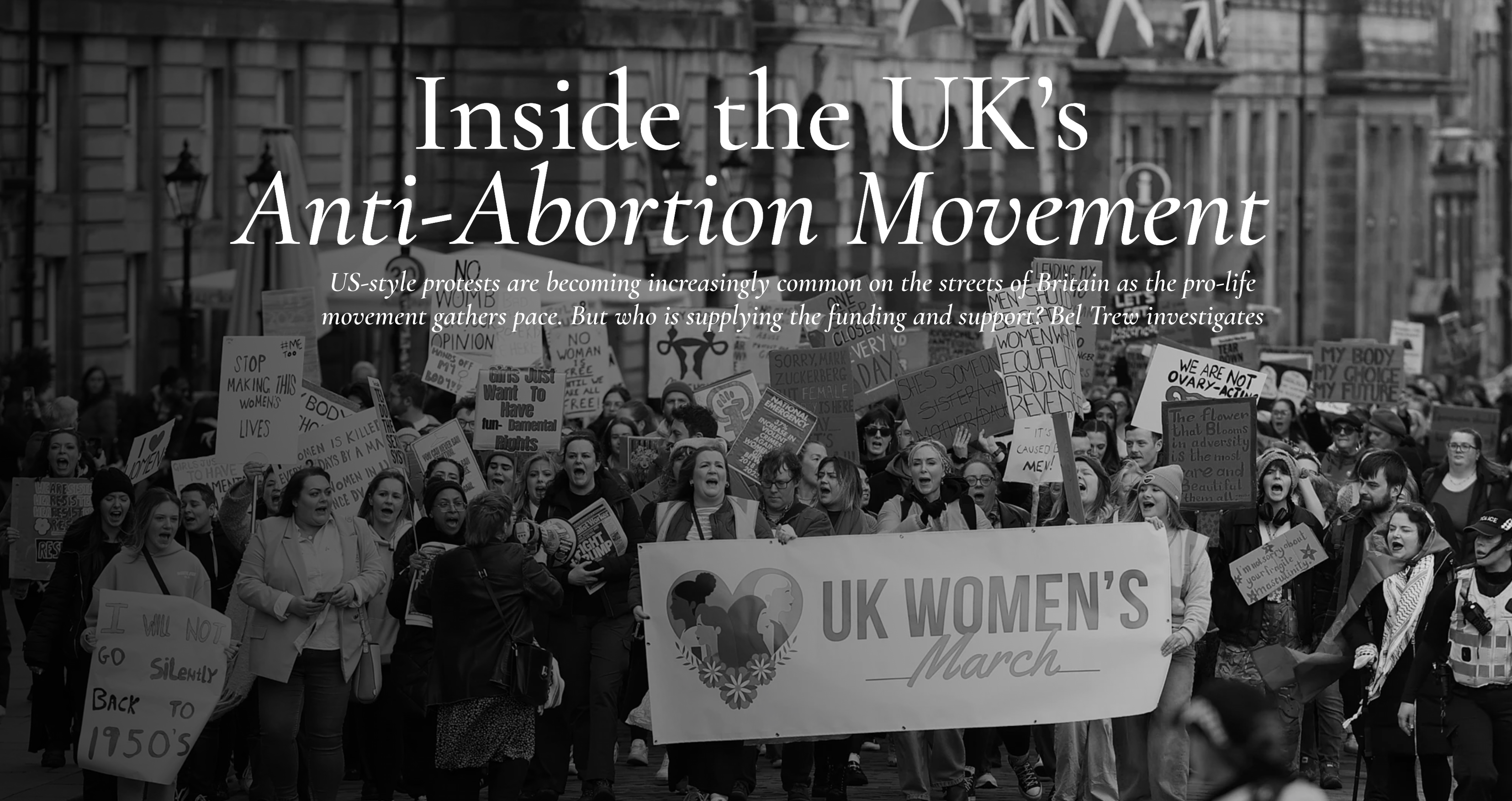Abortion in the UK Still Isn’t a Legal Right — Today That Might Finally Change
With prosecutions on the rise and Victorian-era laws still in force, MPs are pushing for reform


In the UK, it’s easy to assume abortion rights are safe — that the horrors unfolding in parts of the United States could never happen here. But that confidence is dangerously misplaced.
It’s one of the reasons why today marks a pivotal and much-awaited moment in UK reproductive rights as members of Parliament cast their votes on a historic amendment to decriminalise abortion. There are two proposals: NC20 introduced by Stella Creasy to completely decriminalise abortion; and NC1, spearheaded by Labour MP Tonia Antoniazzi, which seeks to remove women from the Offences Against the Person Act 1861, which would effectively end the possibility of criminal prosecution for women who self-manage their own pregnancies.
As journalist Bel Trew revealed earlier this year in her investigation into Britain’s growing anti-abortion movement, six women have been prosecuted in the past two years for ending pregnancies outside legal limits — a sharp and worrying rise from just three convictions in the previous century. Less than six months later, US-style anti-abortion rhetoric has begun echoing through both British streets and Parliament.
At a recent news conference, Reform UK leader Nigel Farage called Britain’s 24-week abortion limit “utterly ludicrous” — a comment Labour MP Stella Creasy says is more than just offensive: it’s a warning sign. “It’s inevitable a man who wants to repeat the Trump playbook would begin attacking abortion access” she says. “That’s why we have to protect it for the 250,000 who have one every year by making it a human right. Only NC20 to the policing bill will do that and stop the erosion of a woman’s right to choose here on our shores too”.

Contrary to what many believe, abortion in England, Scotland and Wales is not a legal right. It’s governed by the 1967 Abortion Act, which criminalises abortion unless strict conditions are met. Women must obtain approval from two doctors and meet specific medical criteria — a paternalistic framework that treats abortion as a medical exception rather than a matter of personal autonomy.
Now, Creasy and 66 cross-party MPs are calling for that to change. The NC20 amendment would decriminalise abortion and enshrine it as a statutory right similar to recent changes in France, which amended its constitution to protect the right to abortion. Another petition, spearheaded by MP Tonia Antoniazzi, calls for a cross-party amendment to the Crime and Policing Bill which would remove women from the criminal law in relation ending their own pregnancies – bringing England and Wales into line with Northern Ireland. If successful, NC1, being tabled by Antoniazzi and a coalition of medical bodies and healthcare providers, would ensure vulnerable women in England and Wales are no longer be subject to years-long investigation, criminal charges, and custodial sentences for ending their own pregnancy.
“Abortion law in England and Wales is the oldest healthcare law in existence and means that a woman can be prosecuted for ending her own pregnancy,” says Dr Ranee Thakar, president of the Royal College of Obstetricians and Gynaecologists, one of the many medical bodies backing the campaign.
Celebrity news, beauty, fashion advice, and fascinating features, delivered straight to your inbox!
Abortions outside the current law often involve highly vulnerable women — those facing domestic abuse, mental health challenges, or barriers to accessing NHS care explains Dr Thakar. “Yet alarmingly, prosecutions of women have been increasing in recent years.”
Heidi Stewart, Chief Executive of the British Pregnancy Advisory Service (BPAS), adds: “Women are being subjected to years-long police investigations, arrested straight from the hospital ward, their homes searched, and their children taken away.”
The case of Nicola Packer has become a defining example. During the Covid lockdown in November 2020, Packer, believing she was under 10 weeks pregnant, took abortion pills issued under emergency pandemic regulations. She unexpectedly gave birth to a fetus at around 26 weeks and sought emergency medical help. Instead, she was arrested and dragged through a four-and-a-half-year legal ordeal only to be acquitted last month by a jury.
“No one should face criminal prosecution for ending their own pregnancy,” says Louise McCudden, UK Head of External Affairs at MSI Reproductive Choices. “Our Victorian abortion laws are not only outdated, but inconsistent, with abortion now decriminalised in Northern Ireland but not in England, Wales, or Scotland.”
The charge increasingly being used in these cases—child destruction, under the Offences Against the Person Act 1861 and the Infant Life (Preservation) Act 1929—was designed to stop illegal backstreet abortions. Today, it’s being used to target women in vulnerable and complex situations.
Even the more modern 1967 Act criminalises women unless they comply with narrow medical conditions and receive the approval of two doctors, a process that delays care and denies autonomy.
The proposed amendment would remove women from the Offences Against the Person Act 1861 and the Infant Life Preservation Act 1929 in relation to their own pregnancies. This would bring England and Wales into line with Northern Ireland. Medical bodies, healthcare providers, and campaigners are calling this an “unmissable moment” to protect women from criminalisation.
Advocates are clear: we must act before it’s too late. The rise of authoritarian populism across Europe, the erosion of LGBTQ+ rights, and the backlash against DEI initiatives are not isolated. They are symptoms of a global regression and if we don’t defend our rights now, we risk having to fight for them later.
As the reversal of Roe v. Wade in the US made clear, rights not explicitly protected are rights that can be taken away.

Mischa Anouk Smith is the News and Features Editor of Marie Claire UK.
From personal essays to purpose-driven stories, reported studies, and interviews with celebrities like Rosie Huntington-Whiteley and designers including Dries Van Noten, Mischa has been featured in publications such as Refinery29, Stylist and Dazed. Her work explores what it means to be a woman today and sits at the intersection of culture and style. In the spirit of eclecticism, she has also written about NFTs, mental health and the rise of AI bands.